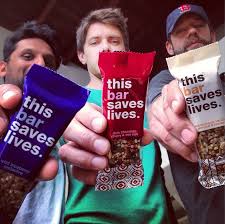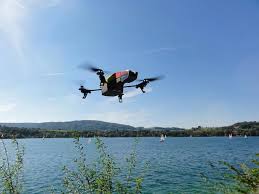Government Grants
Business Grants
Home Owner Programs
Federal Programs
About Us
Leveraging Health Service Equity Approaches for Sustainable HIV Epidemic Control
This notice announces the opportunity to apply for funding under the program Leveraging Health Service Equity Approaches for Sustainable HIV Epidemic Control.
The purpose of this program is to develop and expand unique platforms to bring best practices from domestic experiences to assist the global
HIV/AIDS program to sustain the goal of reaching epidemic control in Malawi, Zambia and other PEPFAR-supported countries.
Funds will be used to continue and scale current HRSA activities for impact in HIV/AIDS treatment services in Malawi, Zambia and other PEPFAR-supported countries.
The successful recipient will work with HRSA to develop and implement strategies to address social determinants and health inequalities found within the healthcare system to improve the delivery of quality HIV/AIDS services in Malawi, Zambia and other PEPFAR-supported countries.
This funding will focus on addressing the following and continuing successful activities in these areas:
• promote empowerment and linkage to health services among all adolescent girls and young women residing in targeted areas; • increase the capacity of health facilities to improve linkage to and continuity of HIV care; • partner with high-volume treatment sites to provide differentiated service delivery models that address treatment interruption and improve viral suppression rates; • use quality improvement and family-centered strategies to support the care needs of mothers and their HIV-exposed infants throughout pregnancy and the postpartum breastfeeding period up to 24 months; • ensure optimized client care records and reporting and related data use to improve the HIV continuum of care at all stages.
The successful recipient must contribute to PEPFAR priorities for achieving the UNAIDS 95-95-95 treatment goals in Malawi, Zambia, and other PEPFAR-supported countries as identified by Department of State/Office of Global AIDS Coordinator (S/GAC) to receive such support for the period of performance.
The activities introduced by the recipient to work towards these UNAIDS goals must be developed with local stakeholders and with a plan to transition to local institutions for additional scale up and sustainability.
This focus on local ownership must be central to all recipient activities to enhance the impact, efficiency, and sustainability of PEPFAR investments.
Priorities for this program should aim to (1) advance equity of access to high-quality person-centered care, (2) introduce innovations that target HIV care and treatment services in sub-populations that lag behind in reaching and sustaining epidemic control, and (3) integrate HIV prevention, care, and treatment services into country led programs in PEPFAR-supported countries to ensure continued gains towards reaching and sustaining HIV epidemic control.
This is a collaborative effort aimed at formulating and delivering assistance for high-impact solutions across the range of interventions that are necessary to attain durable HIV epidemic control.
The project will compile and disseminate best practices for setting up and scaling equitable, person-centered health services that address social determinants of health and the impact of global pandemics.
This will ensure resilient and efficient systems of health service delivery that can manage unanticipated challenges and adjustments of programs while maintaining the quality of care.
These efforts will maintain gains made by PEPFAR investments in health services and improvements in health outcomes of people living with HIV.
The key objectives of Leveraging Health Service Equity for Sustainable HIV Epidemic Control, in collaboration with HRSA, are to:
• Provide strategies for advancing health equity in host countries toward continued sustainability of HIV programs, as they approach the achievement of PEPFAR goals; • Introduce innovations to reach sub-populations with unmet needs, and provide result-driven innovative implementation models for sustainable HIV epidemic control; • Determine and disseminate best practices and innovative models that are person-centered and address social determinants of health to deliver high-quality health services; • Strengthen health system capacities to enable seamless transition of HIV services to host country governments across PEPFAR-supported countries; and • Monitor and evaluate the process of transition efforts to assure maintenance of positive health outcomes and performance results.
To meet these objectives, the program will work with country and multilateral stakeholders to collectively prioritize and develop country-led solutions to meet the purposes of this program
The purpose of this program is to develop and expand unique platforms to bring best practices from domestic experiences to assist the global
HIV/AIDS program to sustain the goal of reaching epidemic control in Malawi, Zambia and other PEPFAR-supported countries.
Funds will be used to continue and scale current HRSA activities for impact in HIV/AIDS treatment services in Malawi, Zambia and other PEPFAR-supported countries.
The successful recipient will work with HRSA to develop and implement strategies to address social determinants and health inequalities found within the healthcare system to improve the delivery of quality HIV/AIDS services in Malawi, Zambia and other PEPFAR-supported countries.
This funding will focus on addressing the following and continuing successful activities in these areas:
• promote empowerment and linkage to health services among all adolescent girls and young women residing in targeted areas; • increase the capacity of health facilities to improve linkage to and continuity of HIV care; • partner with high-volume treatment sites to provide differentiated service delivery models that address treatment interruption and improve viral suppression rates; • use quality improvement and family-centered strategies to support the care needs of mothers and their HIV-exposed infants throughout pregnancy and the postpartum breastfeeding period up to 24 months; • ensure optimized client care records and reporting and related data use to improve the HIV continuum of care at all stages.
The successful recipient must contribute to PEPFAR priorities for achieving the UNAIDS 95-95-95 treatment goals in Malawi, Zambia, and other PEPFAR-supported countries as identified by Department of State/Office of Global AIDS Coordinator (S/GAC) to receive such support for the period of performance.
The activities introduced by the recipient to work towards these UNAIDS goals must be developed with local stakeholders and with a plan to transition to local institutions for additional scale up and sustainability.
This focus on local ownership must be central to all recipient activities to enhance the impact, efficiency, and sustainability of PEPFAR investments.
Priorities for this program should aim to (1) advance equity of access to high-quality person-centered care, (2) introduce innovations that target HIV care and treatment services in sub-populations that lag behind in reaching and sustaining epidemic control, and (3) integrate HIV prevention, care, and treatment services into country led programs in PEPFAR-supported countries to ensure continued gains towards reaching and sustaining HIV epidemic control.
This is a collaborative effort aimed at formulating and delivering assistance for high-impact solutions across the range of interventions that are necessary to attain durable HIV epidemic control.
The project will compile and disseminate best practices for setting up and scaling equitable, person-centered health services that address social determinants of health and the impact of global pandemics.
This will ensure resilient and efficient systems of health service delivery that can manage unanticipated challenges and adjustments of programs while maintaining the quality of care.
These efforts will maintain gains made by PEPFAR investments in health services and improvements in health outcomes of people living with HIV.
The key objectives of Leveraging Health Service Equity for Sustainable HIV Epidemic Control, in collaboration with HRSA, are to:
• Provide strategies for advancing health equity in host countries toward continued sustainability of HIV programs, as they approach the achievement of PEPFAR goals; • Introduce innovations to reach sub-populations with unmet needs, and provide result-driven innovative implementation models for sustainable HIV epidemic control; • Determine and disseminate best practices and innovative models that are person-centered and address social determinants of health to deliver high-quality health services; • Strengthen health system capacities to enable seamless transition of HIV services to host country governments across PEPFAR-supported countries; and • Monitor and evaluate the process of transition efforts to assure maintenance of positive health outcomes and performance results.
To meet these objectives, the program will work with country and multilateral stakeholders to collectively prioritize and develop country-led solutions to meet the purposes of this program
Related Programs
Rapid Expansion of Antiretroviral Therapy Programs for HIV-Infected Persons in Selected Countries in
Department of Health and Human Services
Agency: Department of Health and Human Services
Office: Health Resources and Services Administration
Estimated Funding: $10,000,000
Office: Health Resources and Services Administration
Estimated Funding: $10,000,000
Who's Eligible
Obtain Full Opportunity Text:
Link to all ONR BAAs
Additional Information of Eligibility:
Eligible applicants include domestic and foreign public or private, nonprofit entities, including institutions of higher education, and for-profit entities.
Faith-based and community-based organizations, Indian Tribes, and tribal organizations are eligible to apply.
Full Opportunity Web Address:
http://www.onr.navy.mil/Contracts-Grants/Funding-Opportunities/Broad-Agency-Announcements.aspx
Contact:
Agency Email Description:
Contact Laura Foradori at (301)443-3502 or email lforadori@hrsa.gov
Agency Email:
Date Posted:
2022-06-07
Application Due Date:
Archive Date:
2013-05-15
Social Entrepreneurship
Spotlight
A Bar That Saves Children’s Lives

Ryan Devlin, Todd Grinnell and Ravi Patel have traveled to Africa on a humanitarian trip a few years back, encountering children suffering from severe malnutrition get healthy through Plumpy’Nut®.

